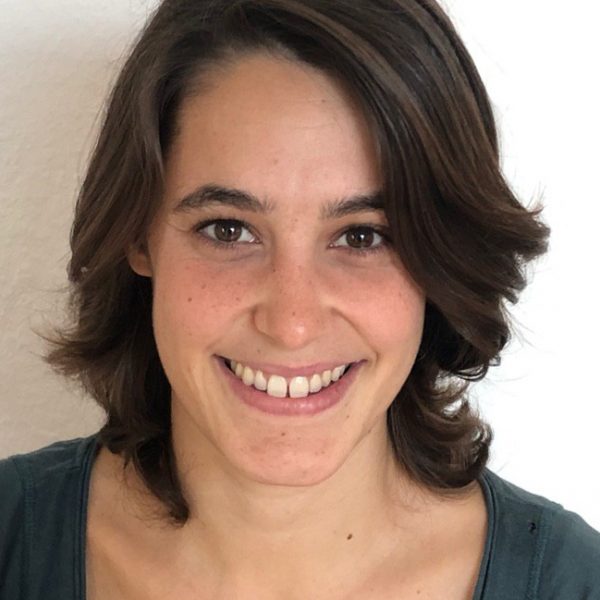
Sara Lafuente
is a sociologist specialized in reproductive bioeconomies from a feminist STS perspective in dialogue with both queer theory and feminist economics. Sara Lafuente holds a PhD in Sociology from the Universidad Complutense of Madrid, obtained with her thesis: ‘Reproductive Bioeconomies: on How Eggs Matter within After-IVF Biology’, supervised by Vincenzo Pavone and Rubén Blanco. She also holds an MSc in “Biomedicine, Bioscience and Society” from the London School of Economics. She worked as a researcher at the Institute of Public Goods and Policies of the National Spanish Research Council (CSIC): first, as a pre-doc researcher, on the Spanish National Research Plan within the “BioArreme” project around Reproductive Bioeconomies, whose IP was Vincenzo Pavone; later on, as a Post-Doc, she worked on the EDNA Project, a comparative study around Egg donation in UK, Belgium and Spain, whose IP is Nicky Hudson, from De Montfort University. She is currently a Post-Doc on CRYOSOCIETIES project, led by Thomas Lemke at the Goethe University Frankfurt.
Publications
Core Publications
Lafuente-Funes, S. (2019). Shall we stop talking about egg donation? Transference of Reproductive Capacity in the Spanish Bioeconomy. BioSocieties () 1-19, DOI: 10.1057/s41292-019-00149-.
Lafuente-Funes, S. (2018). Bioeconomías reproductivas: claves para pensar la participación de terceras partes en la reproducción. In Rodríguez Ruiz, B., Tirant lo Blanch Autonomía, género y derecho. Debates en torno al cuerpo de las mujeres.
Lafuente Funes, S. (2017). Egg donation in the making: gender, selection and (in)visibilities in the Spanish bioeconomy of Reproduction. In Pavone, V., & Goven, J. (eds.), Bioeconomies: Life, Technology, and Capital in the 21st Century. Palgrave McMillan, 253–277.
Pavone, V., & Lafuente, S. (2017). Selecting What? Pre-implantation Genetic Diagnosis and Screening Trajectories in Spain. In Wahlberg, A., & Gammeltoft, T. (eds.), Selective Reproduction in the 21st Century. Palgrave McMillan.
Most recent
Lafuente-Funes, S. (FORTHCOMING). La reproducción asistida en el Estado español: la ovodonación como motor de un modelo de negocio heteronormativo. Journal: Política y Sociedad.
Research
Suspended Life: Exploring Cryopreservation Practices in Contemporary Societies (CRYOSOCIETIES) (1 April 2019 – 31 March 2024, Advanced Grant, European Research Council, Grant No. 788196, Team Members: Prof Thomas Lemke (PI), Veit Braun, Dr Sara Lafuente, N.N., Viona Hartmann)
Cryopreservation practices are an essential dimension of contemporary life sciences. They make possible the freezing and storage of cells, tissues and other organic materials at very low temperatures and the subsequent thawing of these at a future date without apparent loss of vitality. Although cryotechnologies are fundamental to reproductive technologies, regenerative medicine, transplantation surgery and conservation biology, they have largely escaped scholarly attention in science and technology studies, anthropology and sociology.
My current role at the CRYOSOCITIES Project is to study Egg Cryopreservation in the Spanish context. For the last seven years I have studied eggs and oocytes in Biology and Biomedicine. Within that, I have studied the growth of reproductive markets in Spain, focusing on the role that oocytes’ reproductive capacity had on their rapid expansion. I studied how researchers on reproductive biology talk and present eggs and their accompanying cells, the ways in which those are dealt with in IVF laboratories and thought of within reproductive clinics. Through this research I learned how eggs matter, in its double sense, within current Spanish reproductive bioeconomies.
Currently I am immersed in preparing fieldwork to study how cryopreservation technologies affect the Spanish landscape: the ways in which eggs, women and society at large shift with the expansion of these technologies. This research belongs to the broader ERC project CRYOSOCIETIES, led by Thomas Lemke. It studies the ways in which cryotechnologies reconfigure our societies, their temporalities and spatialities: it aims at further studying how vitality and politics have evolved within the context of cryopreservation. Within it, we will empirically study and compare the ways in which different cryotechnologies work in different European countries. My current research asks: What can we learn from oocyte vitrification to understand these CryoSocieties? How do current bioeconomies of reproduction help to shape (and how are they shaped by) cryotechnologies and the matter in which they intervene? What are these socio-technical practices of egg freezing telling us about the making of selves, societies and subjectivities today?